RESEARCH TEAM PRINCIPAL INVESTIGATOR
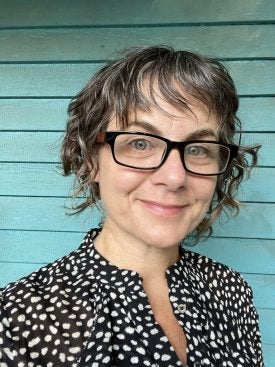
Elizabeth F.S. Roberts – UM Anthropology Professor & MEXPOS / NESTSMX PI.
Elizabeth F.S. Roberts is a professor of anthropology at the University of Michigan, who investigates scientific and public health knowledge production and its embodied effects in Latin America and the United States. She currently collaborates with engineers and environmental health scientists in the United States and Mexico as part of two ongoing team-based projects in Mexico City that she directs: “Mexican Exposures: A Bioethnographic Approach to Health and Inequality” and "Neighborhood Environments as Socio-Techno-bio Systems: Water Quality, Public Trust, and Health in Mexico City” (NESTSMX). In these projects, she and her team trace the looping social, economic, biological, and technical processes that shape everyday life, health, and inequality in working class neighborhoods. One of the key aims of Professor Roberts’ current work is the development of bioethnography, a method that combines social and life sciences approaches in order to make better knowledge about health and inequality. Dr. Roberts is also the director of the Mexico’s Ethnographic Coding Lab where she trains undergraduates in qualitative coding methods using materials from her two multi-disciplinary collaborative projects in Mexico City. Dr. Roberts’ earlier research focused on assisted reproduction in the United States and Ecuador, reproductive governance in Latin America, and transnational medical migrations. She is the author of the book God’s Laboratory: Assisted Reproduction in the Andes (U.C. California Press 2012) and is currently finishing a book manuscript on addiction called Vital Dependencies: A Bioethnography of Addiction in Mexico City. (lfsrob@umich.edu - Personal page in anthropology)
RESEARCH TEAM MEMBERS
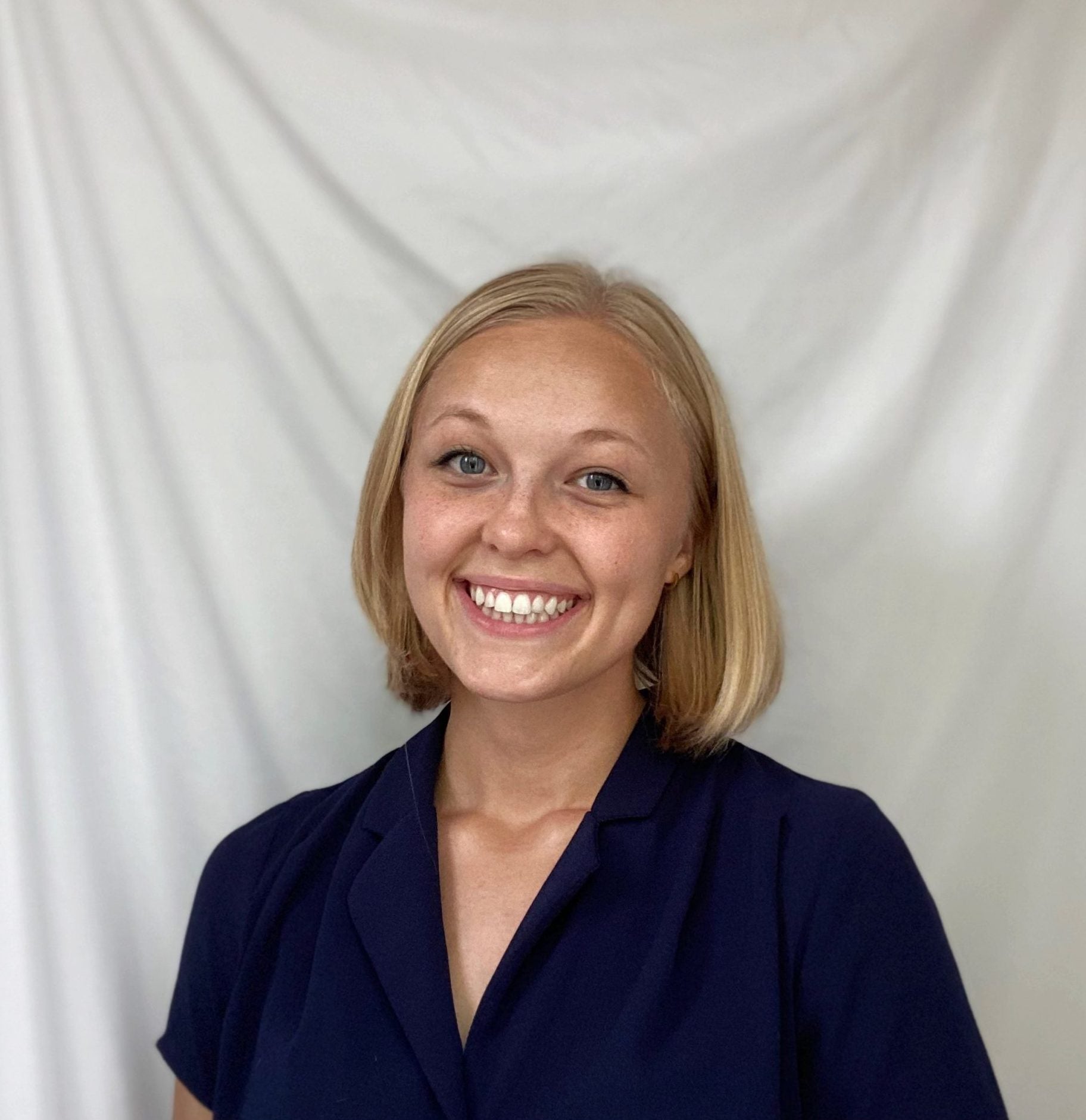
Zoe Boudart – Project Manager for the Center for Global Health Equity Collaboration with NESTSMX
Zoe is the project manager for the collaboration between NESTSMX and the Center for Global Health Equity (CGHE) focusing on intermittent water supply and its impacts on health, gender, and economic outcomes. She graduated in 2020 with a bachelor's degree in Anthropology and International Studies from the University of Michigan, where she also spent three semesters in the Roberts Lab. She has since completed a post-baccalaureate program at Washington University in St. Louis, and is currently pursuing a joint MD-PhD training path in medical anthropology. Zoe has experience coordinating interdisciplinary teams and working closely with ethnographic data and methods. Her research interests include critical medical anthropology, science and technology studies, institutions, materiality, care, and reproduction. (zoebo@umich.edu)

Luis F. Bautista – Instituto Nacional de Salud Pública Research Coordinator & NESTSMX Researcher
I am a research coordinator at the National Institute of Public Health in Mexico (INSP), where I have worked since 2005 coordinating international and multidisciplinary projects. My background is in Spanish and Literature, and currently work in the general management and coordination of research and fieldwork activities for projects related to environmental health at INSP. Specifically, providing coordination support for the local PI of the ELEMENT and PROGRESS cohort studies. I am responsible of all IRB approval process activities of several projects, for which I have training accreditation for human research regulations and procedures in Mexico. I have participated providing research assistance in projects related to the prevention of lead exposure and other environmental toxicants in Mexico. (lbautista@insp.mx)

Ana Bernal – NESTSMX Field Team
I am a biology student at the Universidad Nacional Autónoma de México. I conducted my social service practice in the Laboratorio Nacional de Ciencias de la Sostenibilidad (LANCIS), focusing on the area of water quality doing microbiological analysis. My interests lie in the different dynamics of families with water in Mexico City and how this relates to water quality. I am also interested in science communication directed at citizens, related to the importance of water as an ecosystem service in Mexico City. (anacebege@ciencias.unam.mx)

Faith Cole – Ethnographic Coordinator for NESTSMX
Faith is the Ethnographic Coordinator for NESTSMX. She holds a bachelor’s degree in sociocultural anthropology and Spanish from the University of Michigan, where she worked closely with Professor Roberts on analyses of Mexican Exposures ethnographic data. Faith has worked with sociologists, demographers, public health scientists, and anthropologists for various years at UM’s Institute for Social Research. She hopes to pursue a PhD in medical anthropology, and her interests lie at the intersections of critical global health, global mental health, ethnographic methods, and science and technology studies. (faithco@umich.edu)
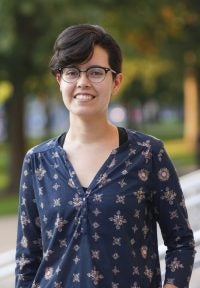
Paloma Contreras – UM Anthropology PhD Student & NESTSMX Field Researcher
I am a Ph.D candidate in Biological Anthropology at the University of Michigan. My previous research was focused on genomic analyses of evolutionary processes in indigenous and admixed populations from Southern South America. I obtained a B.A. degree in Anthropology from the University of Chile. In my doctoral research, I investigate the effects of water insecurity in physical and mental health among women from Mexico City, using a biocultural approach. My research interests include environmental health, biocultural anthropology, and Latinx studies. (palomacz@umich.edu)
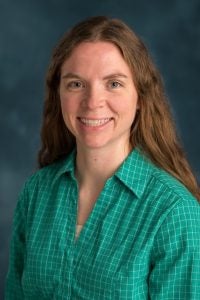
Jaclyn Goodrich – UM Environmental Health Sciences Research Assistant Professor & MEXPOS/NESTSMX Researcher
Dr. Jackie Goodrich is a Research Assistant Professor of Environmental Health Sciences at the University of Michigan School of Public Health. Dr. Goodrich completed her undergraduate degree in Cellular and Molecular Biology and her doctoral degree in Toxicology at the University of Michigan. She furthered her training with a postdoctoral fellowship at the University of Michigan focused on epigenetics and environmental epidemiology.
Dr. Goodrich's research interests combine toxicology, epidemiology and epigenomics with the goal of identifying epigenetically labile genomic regions that contribute to environmentally-induced disease susceptibility at various life-stages (in utero, early childhood, and adulthood). Epigenetic modification by environmental factors is emerging as a link between exposures to toxicity and disease outcomes. Dr. Goodrich is assessing the impact of chemical exposures from occupational practices or the environment (e.g., mercury, lead, phthalates) on epigenetic modifications (DNA methylation) in epidemiological cohorts from around the globe using both candidate gene and epigenome-wide approaches. She integrates data on exposures, DNA methylation, and health outcomes to better understand disease risk from exposures at vulnerable life-stages. Dr. Goodrich also studies the impact of environmental exposures, particularly to heavy metals such as lead and mercury, on cardiovascular and metabolic health outcomes. Dr. Goodrich works out of the Environmental Epigenetics and Nutrition lab. (gaydojac@umich.edu - Personal page in Public Health)
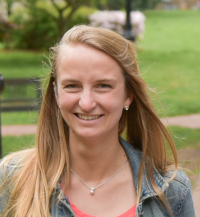
Alyssa Huberts – Harvard University PhD Student & NESTSMX Field Researcher
Alyssa Huberts is a PhD student in Government at Harvard University. She studies urban political economy in Latin America, with an emphasis on service provision within megacities. Prior to beginning her PhD at Harvard, Alyssa worked at Ashoka in Mexico City under a Fulbright Binational Business Grant, and at the InterAmerican Development Bank's research department in Washington, D.C. (alyssa_huberts@g.harvard.edu)

Erica Jansen – UM Public Health Researcher & MEXPOS Researcher
Dr. Jansen is a nutritional epidemiologist who focuses on diet and sleep in relation to pediatric health. She has several lines of research, including the examination of how early nutritional environments affect childhood obesity and timing of puberty, how various aspects of sleep affect health, the bidirectional associations between sleep and diet, and epigenetic markers or mediators that underlie relationships between sleep and cardiometabolic health. More recently, she is interested in how to incorporate ethnographic and other qualitative information into epidemiological analyses, and has used mixed-methods approaches to investigate sleep and diet in Mexico City adolescents. Currently, in collaboration with Dr. Roberts and the ELEMENT team, she is conducting ethnographic interviews about sleep and menopause with women in midlife (see SOS). (janerica@umich.edu)

Branko Kerkez – UM Associate Professor of Civil and Environmental Engineering & NESTSMX co-PI
My research focuses on the development of intelligent water grids, which have the potential to revolutionize the interaction between hydrologic systems and man-made infrastructure. My long-term goal is to build the Internet of water, an intelligent cyber-physical system that connects natural water bodies with physical infrastructure. This demands the use of advanced sensing technologies and data-driven models on top of a novel communications backbone. One main area of interest is the control and optimization of large-scale water systems, spanning everything from water supply (lakes, snowpack, reservoirs) to demand (agricultural and urban uses, hydropower production, decentralized operations of municipal water grids). Many solutions to this large-scale systems problem couple domain knowledge from of Civil and Environmental Engineering with an enlarged set of tools from Electrical Engineering and Computer Science. (bkerkez@umich.edu - Personal page in Civil and Environmental Engineering)
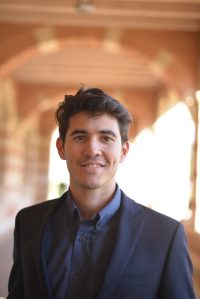
Ernesto Martinez – UM Environmental Engineering PhD Student & NESTSMX Field Researcher
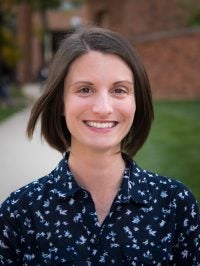
Belinda L. Needham – UM Epidemiology Chair and Associate Professor & NESTSMX Researcher
My research focuses on health disparities. In general, members of socially disadvantaged groups have worse mental and physical health than those who have higher social status. My work seeks to identify, explain, and reduce gender, socioeconomic, racial/ethnic, and sexual orientation health disparities. My primary research goals are: (1) To use novel approaches to assess health disparities across the life course, (2) To identify the social structural, psychological, behavioral, and physiological mechanisms by which social disadvantage leads to health disparities, and (3) To develop and test interventions to reduce the effect of social disadvantage on morbidity and mortality. (needhamb@umich.edu)

David Palma – NESTSMX Field Team
I am a sociologist and I have a master's degree in Urban and Environmental studies at El Colegio de México. For the past two years I have been working in the local Government at Mexico City, on subjects related with Human Rights, Water and Housing. I've been working closely with social organizations, and several governmental offices to coordinate the implementation of Social Housing programs and the availability of water inside this projects.
I have worked in several social research projects related to Urban Development, Security and Risk and the Environment in Mexico City. My research has focused on collective action and democracy around megaprojects in Mexico City such as the newest subway lines and the Supervía, a highly contested megaproject by the civic society in the City. My major interest is in urban development in countries such as Mexico and the sustainable development. (dpalma@umich.edu)

Brisa N. Sánchez – Drexel University Dornsife Endowed Professor of Biostatistics & NESTSMX co-PI
Prof. Sánchez joined Drexel University in 2019 as a Dornsife Endowed Professor of Biostatistics. Prior to that, she earned a Bachelor’s degree in Mathematics and a Master’s degree in Statistics from the University of Texas at El Paso, and a Ph.D. in Biostatistics from Harvard University. In 2006 she joined the Biostatistics Department of the University of Michigan, where she was later named John G. Searle Assistant Professor and was promoted to Full Professor with tenure in 2018.
Her research interests are in statistical methodology applicable to environmental epidemiology, and social epidemiology, and health disparities. Her current methodological work involves developing robust fitting procedures and diagnostics for Structural Equation Models, and using these methods in applications to environmental health problems such as in-utero lead exposure and its effect on child development. She also conducts research on study design for longitudinal studies, in particular the design of studies involving salivary cortisol as a measure of stress in health disparities research. Sanchez also investigates the applicability of various functional data methods to studies of salivary cortisol.
Her collaborative research spans environmental epidemiology, social epidemiology, and health disparities in the areas of cardiovascular disease, stroke, and the distribution of body mass index. Within environmental epidemiology, her work focuses on the impact of lead and air pollution exposure on birth outcomes, and child development and behavior. Her work on health disparities and social epidemiology has included the analysis of the effectiveness of school level interventions to reduce child obesity, among others. (bns48@drexel.edu - Link to personal page. )
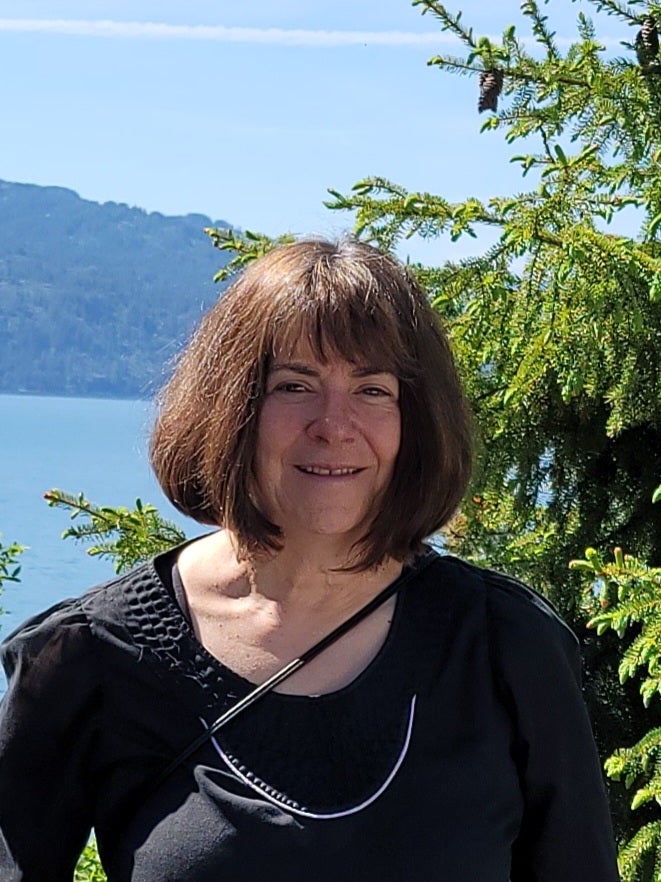
Lesli Scott – NESTSMX Project Manager
Lesli has a long history serving in program and project management positions on multidisciplinary studies at the University of Michigan Institute for Social Research (ISR). She is the main author for the Study Management chapter of the ISR-maintained Cross Cultural Survey Guidelines on-line resource. Lesli currently serves as the project manager for the NESTSMX study as well as the program manager for the ISR Biospecimen Laboratory. Her previous studies at Washington State University included a focus on international agricultural development.

Martha Maria Tellez-Rojo – Instituto Nacional de Salud Pública Senior Researcher & NESTSMX co-PI
Martha M Téllez-Rojo, obtained a Ph.D. in Epidemiology from the National Institute of Public Health (INSP) in Mexico (2003) after a Masters in Statistics at the National Autonomous University of Mexico (1994). She is a senior researcher (ICM-F) at the Center for Nutrition and Health Research at the National Institute of Public Health, Mexico with more than 250 papers published in high impact scientific journals and more than 6000 citations. Her main focus of research is the study of the long term effects of the co-exposure of environmental toxicants and nutritional conditions during gestation and infancy. Since 2002, she has been the principal investigator from the Mexico site of the ELEMENT (Early Live Exposure in Mexico to Environmental Toxicants project) birth cohort study that started in 1994. Along with Drs. Robert and Rosalind Wright and Andrea Baccarelli, has also been one of the principal investigators of the PROGRESS (Program Research in Obesity, Growth, Environment and Social Stressors) birth cohort study since its beginning in 2007. Both studies still ongoing in collaboration with Mount Sinai School of Medicine, University of Columbia, University of Michigan and University of Toronto. From 2004-2014, she headed the Statistical Division at INSP. During that time, she was also very active designing, conducting and analyzing several projects on program evaluation of social interventions. Among the most important projects she has participated in this area is the impact evaluation of Oportunidades, the main anti-poverty program in México; the impact evaluation of Seguro Popular, a health policy aimed to finance and provide health services to more than 50 million Mexicans and she leaded the impact evaluation of 70 y más, the federal anti-poverty program for the elderly population. She had a leading role in the conduction of several national surveys on health-related topics as well. Most of her recent work is focus on impacting health policy of lead exposure in Mexico. (mmtellez@insp.mx)

Krista Rule Wigginton – UM Associate Professor of Civil and Environmental Engineering & NESTSMX co-PI
Dr. Krista Rule Wigginton is an associate professor of Civil and Environmental Engineering at the University of Michigan. Prior to joining the faculty at UM, she was an assistant professor at the University of Maryland, College Park from 2011-2012. Her research focuses on applications of environmental biotechnology in drinking water and wastewater treatment. In particular, her research group develops new methods to detect and analyze the fate of emerging pollutants in the environment. Dr. Wigginton received her B.S. degree in Chemistry from the University of Idaho, and her M.S. and Ph.D. degrees in Environmental Engineering from Virginia Tech. After completing her Ph.D. degree, she worked as a postdoctoral researcher at École Polytechnique Fédérale de Lausanne (EPFL) in Switzerland from 2008-2011. (kwigg@umich.edu - Personal page in Environmental Science )
PAST RESEARCH TEAM MEMBERS
Dr. Mary Leighton – Anthropology | Past Project Manager for MEXPOS and NESTSMX
Dr. Camilo Sanchez – University of Indianapolis Anthropology | Past MEXPOS Researcher
Ana Benito Vinós – Past Field Manager for NESTSMX
Clara Cullen – Past MEXPOS Research Assistant
Hannah Marcovitch – Past MEXPOS Research Assistant
Past Participants in the Roberts Lab

2019-2020. Olabimpe Amokomowo, Zoe Boudart, Jacklyn Camargo,Lauren Chapman, Andrea Cordova, Margaret Greer, Amytess Girgis, Brenna Hattler, Kerry Lindquist, Ami Sanghvi, and Rachele Willard.
2018-2019. Kelsey Merritt, Aditi Kappagantu, Reilly Coombs, Aliya Khan, Lauren Chapman, Sam Franz, Lauren Weiss, Phoebe Wraith, Margaret Greer, Scott Webster (UROP), Amytess Girgis, Olabimpe Amokomowo, Zoe Boudart.
2017-2018. Sonia Ahluwalia, Hannah Barish, Hailey Briscoe, Reilly Coombs, Faith Cole, Sophie Geyer, Sahar Gowani, Aditi Kappagantu, Kelsey Merritt, Andrew Mitchel, Raquelle Sewell, Mikaela Zamarron.
2016-2017. Hailey Briscoe (UROP), Alexandria Choi, Faith Cole, Clara Cullen, Sophie Geyer, Sahar Gowani, Emily Hogan, Lauren Lund, Hannah Marcovitch, Kelsey Merritt (UROP), Kaavya Puttagunta, Raquelle Sewell, Shivangi Sharma.
2015-2016. Meagann Ibarra (UROP), Josue Toledo (UROP), Magdalena Zegarra (graduate student).


